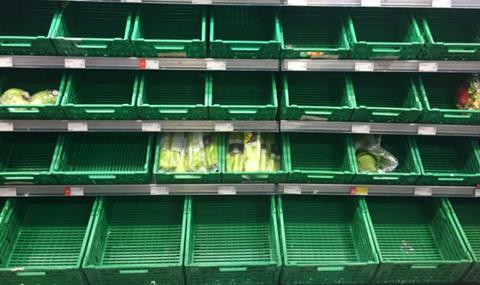
Co-op has blamed “product availability issues” and the effects of Covid after it slipped into the red during the first half of the year.
It also warned that unplanned supply chain challenges and the ongoing costs of Covid would bring greater levels of uncertainty and apply pressure on its prior expected level of profitability for year end.
Underlying operating loss before tax was £15m, down £71m from last year’s profit of £56m but it said it was generally consistent with 2019, when it reported an underlying operating loss of £11m.
It said: “This is due to planned investment in our colleagues and our business, as well as significant costs, impacts on sales and profit erosion related to product availability issues and the ongoing effects of Covid.”
Steve Murrells, Co-op chief executive, said: “As we continue to experience the effects of the Covid-19 crisis, it is clear that things will never be the same again.
“As a business and as a society, it is crucial that we learn from the last 18 months, particularly as we turn to the momentous task of rebuilding Britain and face into the continuing disruption to our business and our supply chains.”
Read more
- Central England Co-op trials home delivery service using zero-emission Mercedes-Benz eVito
- New Co-op driving apprentice tops performance rankings
- Grocer Co-op launches online delivery service using electric cargo bikes
Its results came as the Manchester headquartered group announced a new partnership with Amazon, as well as moves to accelerate “robot deliveries”.
It said the Amazon partnership gives Prime customers the ability to do their full Co-op grocery shop on Amazon.co.uk with same-day delivery and two-hour scheduled time slots.
Co-op has also extended its partnership with Starship Technologies, the delivery robot company launched by the co-founders of Skype, which allows the delivery of groceries in 20 minutes, with a consequent reduction in carbon emissions.
The retailer intends to increase the number of autonomous vehicles operating and delivering Co-op groceries from 200 to 500 by the end of this year, bringing them to five new towns and cities, including Cambridgeshire, and extending the service into the North of England.
Murrells added: “The pandemic has accelerated changes in consumer shopping trends and we’re driving forward with exciting plans to provide rapid kerb to kitchen grocery delivery services.”













